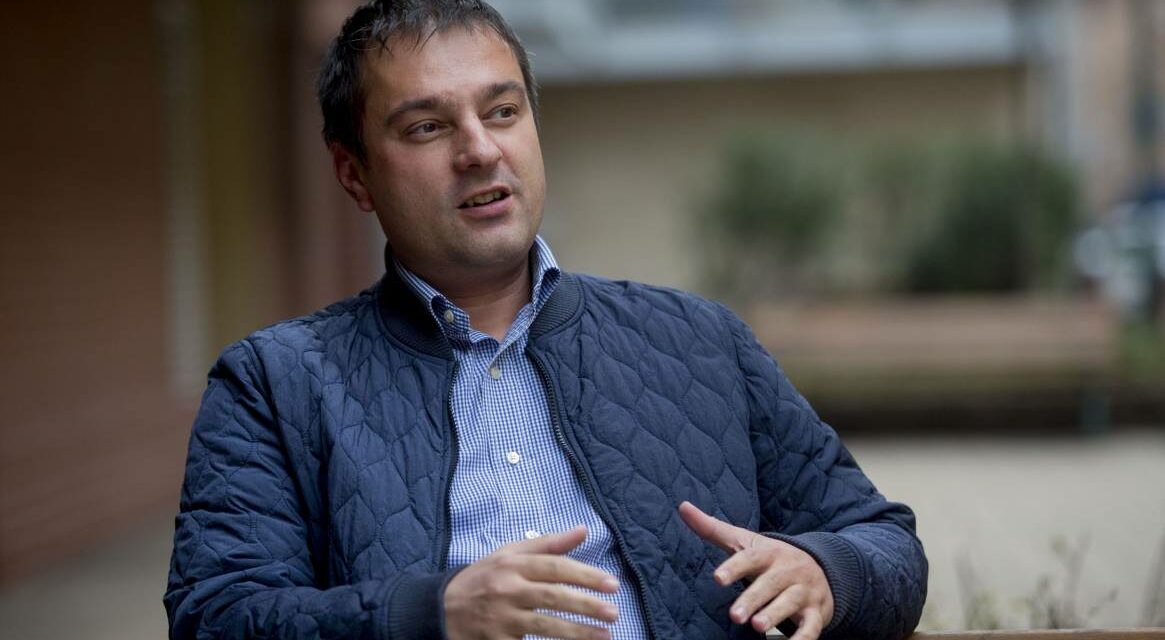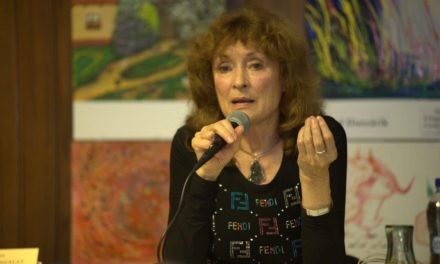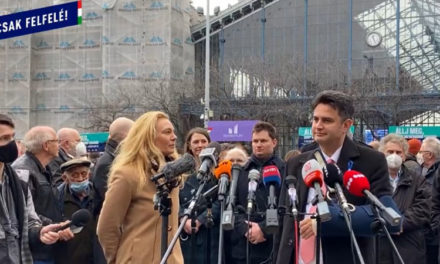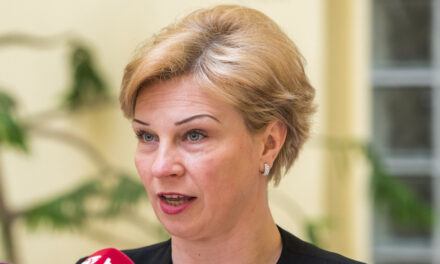Whether we like it or not, Germany is an extremely important partner for us, we are connected to them in many ways, our economy is certainly, so we cannot turn a blind eye, we cannot say that we are not interested in what is happening in that country. We were curious to see what the political scientist Zoltán Kiszelly, who knows the Germans well, thinks about all this.
What is Germany really like today? Have the Germans gone completely mad?
Germany is ruled by the elites, and whatever they decide, they carry it through. Even now, we are witnessing such a great transformation, which is eerily reminiscent of the 1920s. One of the most important processes controlled from above, as part of the great social transformation, is formally the fight against climate change. This is called an energy revolution in Germany,
which means that if everyone lived like us Europeans, we would need three Earths a year. In order to reduce the climate footprint of Europeans, it was decided that the entire European Union must switch from fossil energy to renewable energy at an accelerated pace by 2030, but by 2035 at the latest.
We see this in the banning of petrol and diesel cars or the withdrawal from Russian gas. However, this is a decision controlled from above, which means that this is not a market process, but a system with design instructions. The elites decided and set a deadline, i.e. they do not leave it to the economy to make this happen, but politics decided. And the price of the transition will be paid with the people. For example, with the fact that the future of driving is completely questioned, since there will not be as many electric cars as there are gasoline and diesel cars now.
But the decision-makers do not provide answers to many questions. For example, what about those who have to commute to work? How do children living in the agglomeration get to school? How do they get to the doctor from more distant places of residence? What will happen to the existence of rural people?
None of this concerns the decision-makers, the matter has been decided and whatever it costs, they will see this energy turnaround through.
Not to mention the problems of the industry's energy needs.
We can see the damage of this even now. Someone blew up the Nord Stream 2 gas pipeline, and with that the foundation of German industry was destroyed, on which the West Germans built their wealth for 40 years. They were able to make premium products from cheap Russian wired energy, for example glue, paint, car parts, and high-value materials from Russian gas. Now that there is no cheap Russian wired power, it is much more expensive to purchase energy and raw materials.
The result: the profit that they were used to before is already a thing of the past, this previous business model no longer works, or only works with a much smaller profit.
BASF's factory in Ludwigshafen is no longer profitable, so they will build a similar factory in China for 10 billion euros, which will produce premium products in China. This is how we understand, for example, why there is a shortage of medicines throughout Europe. A large part of the chemical industry is moving to Asia, which means that pharmaceutical raw materials that were previously produced in Europe are also produced in Asia. From there, the container will either arrive, or it won't arrive, or there will be raw materials, or there won't be.
Until now, we thought that the Germans were pragmatic, with two feet on the ground, and what has been said so far is the exact opposite. They shut down the nuclear power plants and opened lignite mines instead, and in addition, Ceausescu was embarrassed by the destruction of villages, because where there is lignite, there is no need for churches or residential buildings. In addition, the burning of lignite is extremely harmful to the environment. What is the logic in the fact that, for the sake of the alleged clean air, they are polluting for a while now?
Germany is an elite project, so it is not the German people who decide, but the German elite, the two hundred families that rule Germany. They make the decisions and they decided that German industry will be restructured in the context of climate change. In this, they sometimes help from the outside, for example by blowing up the already mentioned gas pipeline, which creates a forced situation that speeds up the processes. Just as covid accelerated the death of malls and cinemas, since shopping or entertainment drove people to the Internet, the war also accelerates processes that would have happened without them. For example, the separation of East and West, or the changes within the West.
The German elite decided that the German economy and, indirectly, the European economy as well, will be transferred from fossil energy to green hydrogen, which will be produced from renewable energy. They also calculated that a unit of green hydrogen would cost approximately 30 euros. This is roughly how much the war cost, or the Russian gas in the pre-covid period, but if there were or remained nuclear power plants, then renewable energy would not develop. The closure of the nuclear power plants was therefore done for ideological reasons. German politicians travel halfway around the world and try to persuade countries from Canada to Qatar to Australia to produce hydrogen from renewable energy, which they then transport to Europe.
Again, this was an ideological decision made by the elites and forced upon German society. We can see the consequences of this decision in higher energy costs or in the fact that German industry is migrating away.
German companies are not only moving to China, but also to the USA.
This reminds me of the '20s again. A part of German industry cooperates with the American economy. The Americans need German science, German patents, German technical innovation, because the Americans are good at marketing, but they are a little behind in product development, especially in the traditional industry. We see it like in the twenties. Then IG Farben and Dupont worked together, now a big collaboration is taking shape between Bayer and Monsanto, or, say, Rheinmetall and Lockheed Martin in the military industry.
In the twenties, German industry and the greater part of German society did not benefit from this cooperation, because the money went to America, so some of the German elites chose a different path. Now we are once again where a part of the German elite, a smaller part, benefits from closer cooperation with America, while the majority of German society and German elites do not.
It is a question of what kind of answer they give to this situation, because the answer given in the twenties did not lead to good results. Separation from China, for example, is a big issue. The Americans want to completely separate the 40 countries of the West from China within 3-5 years, while part of the German elite can work very well with China economically. This will lead to a fault line, because the other part of the German elites insists on cooperation with America.
What is completely incomprehensible, however, is the migration policy of the Germans.
This is a serious problem, because Merkel thought that what could not be solved with the euro crisis would be solved under the vortex of migration and the whole of Europe would be unified according to the German model. He wanted to raise German solutions to the European level, because German companies know these German solutions, and if they work all over Europe, just not under the German flag, but under the EU flag, then German companies will be better off. The euro crisis would have been good for that. Referring to the common European currency, they wanted to create the European Central Bank on the model of the German Bundesbank. They thought that the southerners would also pull themselves together and implement labor market reforms like the Protestant countries at the beginning of the 2000s, when there were very serious austerity measures in England, the Netherlands, and Germany, which gave the economy a boost.
But this did not happen in the south, because they were afraid of the political consequences, they did not want to suffer the fate of the Greeks, so the attempt failed.
After that, Merkel thought that the migration crisis would lead to a federal Europe, and here we saw and continue to see German solutions put on the European level. Just as migrants are distributed within Germany based on the Königsteiner Schlüssel (Königstein key), this would be implemented at the European level by the Juncker formula or Juncker quota. They calculate how many migrants a given country receives.
In Germany, the labor officer already sits next to the immigration officer, and when a migrant arrives, they no longer only look at whether he is entitled to refugee status, but also at how he can be integrated into the labor market. They also want to implement this at the European level.
This is called "lane change", the asylum seeker "changes lane" and becomes a job seeker. However, this does not work because, on the one hand, German social benefits are too generous, and on the other hand, no one is deported. One million migrants were admitted in 2015-16 and another million since then, so two million migrants have arrived in Germany in the last 8 years.
Due to the relatively generous provision compared to African or Asian standards, the newcomers are not even motivated to work, because they get a panel apartment on the outskirts of the city, the heating, clothing, rent and utilities are paid for them, and they also receive five hundred euros in pocket money per month.
If they also work illegally or earn extra money in any other way, then why would you go to work? To earn, say, 2,500 euros, of which they have to pay 1,200 euros for rent, 2-300 euros for utilities, 4-500 euros for meals, and at the end of the month they have 500 euros left, just like the amount of the aid. The social system should be changed, but it cannot be, because the German courts do not allow it.
There was a time when they could solve the replacement of the German workforce from Central and Eastern European countries, and now there are also refugees from Ukraine. Is this not a solution?
With such social care, Ukrainians were not interested in working either. The real problem for the Germans is that while half a million German skilled workers retire every year, they are highly qualified professional workers, but those who come are not skilled workers, or they do not want to do the work that the Germans do not want either. The same problems as throughout Europe, as in Hungary. Due to covid, for example, there is a huge exodus from the healthcare system and the education system. Teachers, doctors, and nurses do not want to go through what they had to go through during covid. There is mainly a shortage of specialists and pediatricians in rural Germany.
We see the same thing with physical work, no one wants to do it anymore, or only very few do. Migrants cannot be retrained either, because they do not learn German, they do not complete the vocational schools without which one cannot become a skilled worker or master in Germany.
Added to this is the already mentioned situation, that not so many guest workers come from Central and Eastern Europe anymore, because in the shortage professions, competitive salaries can be obtained in our region. It's only worth going to Germany if you want to study, develop, maybe learn the latest technology, save some money to start a business at home, and not as many people stay permanently in Western Europe as before.
The German elite is in the middle of a transformation, which is the main problem, that just as Brussels does not have a good offer for Europe, the German elite does not have a good offer for the German people and European allies either.
So what Germany is doing is good for fewer and fewer people in Germany and Europe, the problem is that compared to the previous years, compared to the years of prosperity, the contrast is getting bigger and bigger, which is already becoming more and more visible in everyday life.
Featured Image: Facebook












